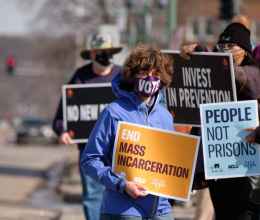Augusta – In a significant victory for smart criminal justice reform, the Maine Senate today followed the House in voting in favor of LD 1190, “An Act Regarding Driver’s License Suspensions for Nondriving-related Violations.” The bill, sponsored by Rep. Matt Moonen (D-Portland), would end the practice of automatic driver’s license suspensions for missed fine payments, for most non-driving related violations.
Currently, failure to pay a fine related to a criminal offense results in an automatic driver’s license suspension. For those who can afford to pay the fine, license suspension is avoidable. But for those who cannot afford to pay, license suspension can be an unavoidable consequence of poverty.
“Suspending someone’s license for failure to pay a fine only makes it harder for them to do so. For many Mainers, no driver’s license means no way to get to work, and no work means no income to pay the fine,” said Oamshri Amarasingham, advocacy director at the ACLU of Maine, which led the support of the bill. “Driver's licenses are supposed to be about safety, not punishing someone for being poor.”
Maine’s tangled system of fines for criminal offenses has come at a great cost to low-income Mainers, trapping them in an unending cycle of arrests, incarceration and growing fees. It has also come at a great cost to Maine taxpayers, who foot the bill for locking someone up – often at a cost greater than the fines they owed in the first place.
The ability to drive in Maine is crucial to nearly all families. This is especially true in rural areas with no public transportation systems. Without a valid license, parents may be unable to get their children to daycare, doctor’s visits, and other crucial appointments.
Further, studies show that driver’s license suspensions do not serve as a deterrent and may do more harm than good. According to the American Association of Motor Vehicle Administrators, “Some studies have shown that suspending driving privileges for non-highway safety related reasons is not effective. The cost of arresting, processing, administering, and enforcing [these suspensions] create a significant strain on budgets and other resources and detract from highway and public safety priorities.”
“The current system disproportionately hurts rural Mainers, people with low incomes, and single parents. It traps people in the criminal justice system, rather than helping them make a successful return to society,” said Amarasingham. “This bill will help put people back on track to becoming productive members of society, and help us spend our corrections resources on policies that actually keep us safe.”
The bill will now go back to both chambers for enactment votes.








